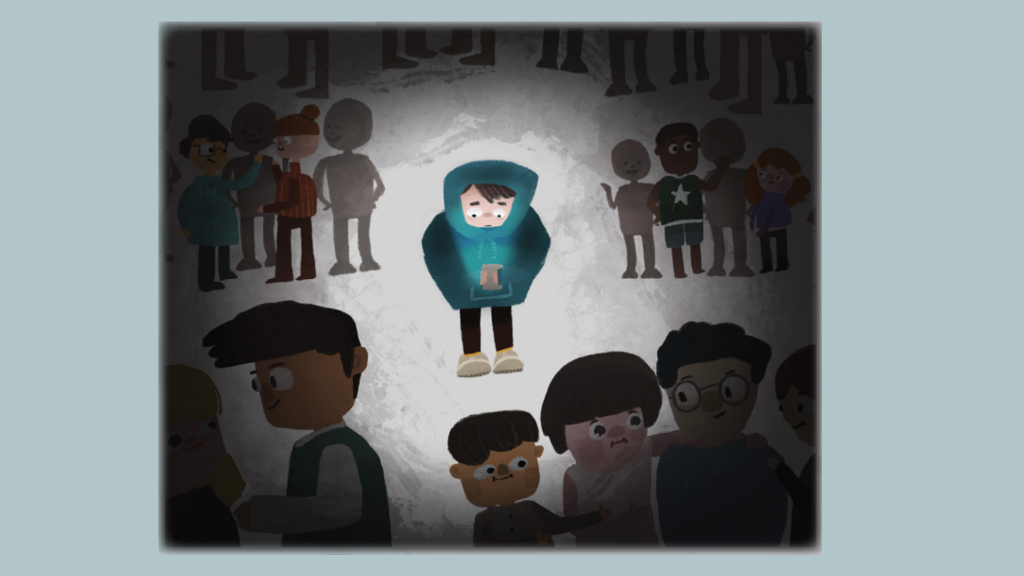Toxic Masculinity and the Loneliness Epidemic
by Anjali Shiyamsaran | published Nov. 12th, 2021
When personal issues arise, men are 36 percent less likely than women to share them with friends and family. The concept of “real men” has fueled toxic masculinity into an epidemic of loneliness, where the pressure to maintain a certain image distances many men.
Root of Toxic Masculinity
Mental health therapist at the Counseling and Psychological Services and College of Science, Jaime Castillo, boiled down toxic masculinity to its core.
“Toxic masculinity occurs when individuals, in this case men or those who identify as men, prevent themselves from being able to enjoy basic human needs that we need in order to live a meaningful life,” he explained.
“Toxic masculinity occurs when ... men or those who identify as men, prevent themselves from being able to enjoy basic human needs.”
This mindset stems from being unable to be genuine to oneself and thus fearing to be genuine towards others without being seen as weak.
Hegemonic masculinity, commonly associated with “macho” behavior in Western societies, can be showcased through aggression, physical strength, competitiveness and male dominance. In the face of adversity, one might seem almost stoic or invulnerable in an effort to exude strength or courage. This idealized set of norms typically stems from the refusal to acknowledge weakness or vulnerability, express emotions or seek help from others.
For years, men have been criticized for partaking in acts that seem inherently gender-neutral: entering “unmanly” professions, such as nursing or teaching, playing the wrong kind of sports or carrying their own children.
“You’re molded into that based on whatever culture that you’re growing up in that would put toxic masculinity as an important trait,” Castillo said.
Pressure to adhere to traditional male gender roles can promote an equally unhealthy image or stereotype of how men are perceived in terms of societal gender norms.
Sean Su, fifth year Chemical Engineering student at RIT, shared his experiences growing up alongside Chinese gender norms.
“There’s always been this very ingrained expectation that you will have a son,” Su said. “It makes it harder to interact with [my parents] when I know that they’re inevitably going to start nagging me about finding a girl.”
Su also pointed out the differences he has noticed between Chinese and American gender roles.
“[In American culture], there is this idea of the male head of house. The person in charge is the father,” Su said. “But the way that it extends over the extended family, I find in American culture, tends to be less gender-specific in terms of who’s in charge of a ‘clan.’”
Loneliness and Being True to Yourself
The act of expressing love or personal feelings with friends or family is oftentimes deemed emasculated or feminine, allowing for missed connections in potentially close relationships.
“From an interpersonal perspective, if you cannot communicate your emotions in any kind of relationship, it’s going to collapse,” Su explained.
Difficulty to foster meaningful relationships with new people can lead to isolation and feelings of loneliness and insecurity.
If one is not able to be vulnerable, empathetic or compassionate to themselves, they most likely will not be able to do that for others around them.
“You’re going to find yourself not being able to have deep and meaningful conversations or relationships with other people ... and when you really need support, you don’t get it because there’s nobody there," Castillo said.
On the other hand, if support is needed, one may not know how to ask for it out of fear of being viewed as even more weak or non-masculine.
Feeling Is Believing
In order to overcome such an unhealthy mindset, Su underscored the importance of self-determination as students decide what they want to be in life.
“Honestly, that can be anything. So don’t let somebody else bog it down,” Su stated.
When considering masculinity, it is important to understand that identifying male strengths can be more beneficial than simply focusing on what seem like problematic behaviors. Such strengths include use of empathy, male relationships focused on shared activities, generative fatherhood and more.
For those struggling with toxic masculinity and adhering to gender norms, it can be especially helpful to take time to simply be with themselves.
“Just ask yourself, ‘How am I doing today? Who is important in my life right now? Who do I care about today right now?’” Castillo suggested.
Oftentimes, people think they are spending alone time while scrolling through social media, which unfortunately does more to raise their anxiety.
Perspective and mindfulness, on the other hand, can help to keep one’s relationships with oneself and others healthy.
Castillo recommended some activities to help promote healthy expression of emotion, such as journaling.
“No life is easy. Don’t take the relationships you have for granted. Relationships with other people [are] so important to your well-being across your lifespan," Castillo said.
“Don’t take the relationships you have for granted. Relationships with other people [are] so important to your well-being."
Lastly, self-perception and self-awareness can be key to noticing potentially harmful behaviors and redefining one’s individuality in a healthy way.
“Find somebody who you trust the most — who you feel most comfortable with — and ask them how they perceive you,” Castillo recommended. “You want to be able to have that conversation with somebody to understand how the world sees [you].”
Openly discussing one’s emotions with close friends and family without fear of criticism or judgement can help to break down exaggerated masculine traits — and as a result, break down the detrimental patterns of thinking known as toxic masculinity.



